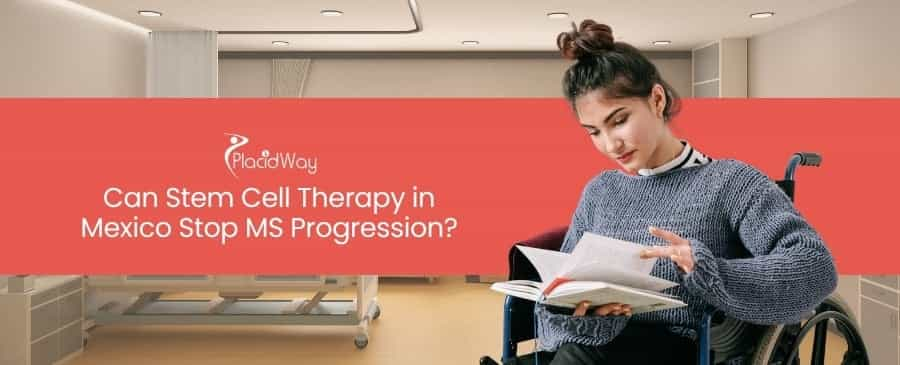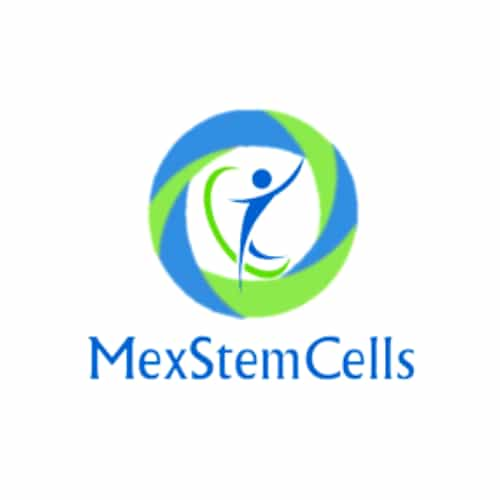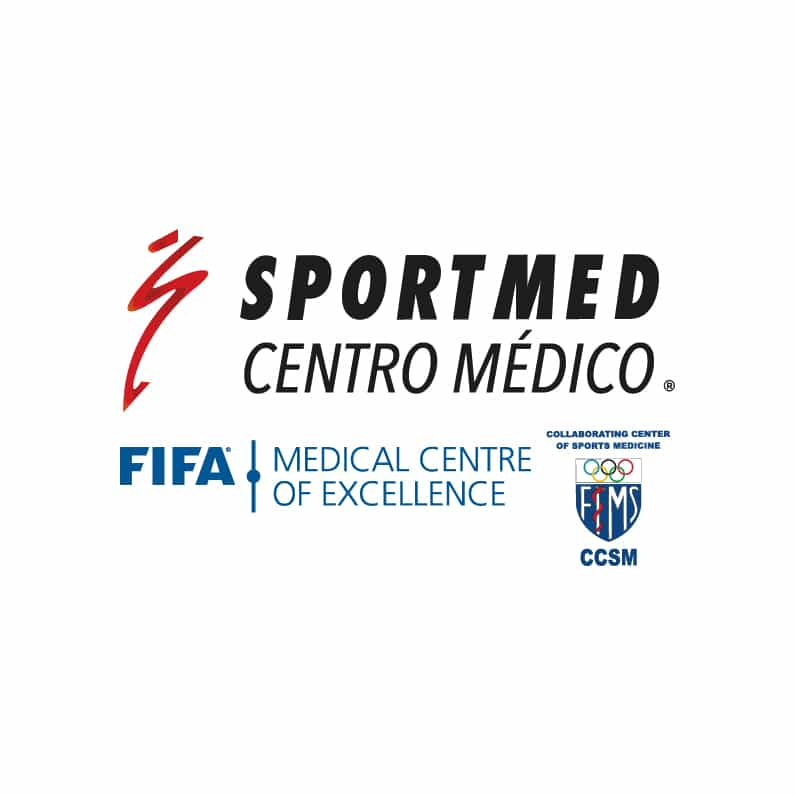Cost of Stem Cell Therapy for MS in Mexico

Many individuals living with Multiple Sclerosis (MS) are constantly searching for effective treatments that can halt the relentless progression of their condition. Stem cell therapy has emerged as a hopeful avenue, and Mexico has become a prominent destination for those seeking these innovative treatments. But the core question remains: can stem cell therapy in Mexico truly stop MS progression?
The short answer is that while current stem cell therapies, particularly hematopoietic stem cell transplantation (HSCT), have shown significant potential in reducing disease activity and improving symptoms, they are not universally recognized as a definitive cure to completely stop MS progression.
However, for many, these treatments offer a new lease on life by slowing down the disease's advancement and enhancing overall quality of life. Exploring these options in countries like Mexico often offers accessibility and cost-effectiveness that can be appealing.
Can Stem Cell Therapy Truly Stop MS Progression?
The idea of stopping MS progression is a major hope for patients worldwide. While stem cell therapy, especially autologous hematopoietic stem cell transplantation (AHSCT), has demonstrated remarkable success in some cases, it's crucial to manage expectations.
AHSCT works by "resetting" the immune system, which is believed to be attacking the myelin in MS patients. By eliminating the faulty immune cells and regenerating new ones from the patient's own healthy stem cells, the goal is to prevent further autoimmune attacks.
Studies and patient experiences suggest that AHSCT can significantly reduce relapse rates and slow down or even stabilize disability progression in certain types of MS, particularly highly active relapsing-remitting MS (RRMS).
However, it doesn't repair existing damage, nor does it guarantee a complete halt for all patients, especially those with advanced progressive forms of MS. It is a powerful tool for disease modification, not a universal "stop" button.
What Types of Stem Cell Therapy Are Used for MS in Mexico?
When considering stem cell therapy for MS in Mexico, you'll primarily encounter two main types: AHSCT and Mesenchymal Stem Cell (MSC) therapy. AHSCT is the more rigorously studied and widely recognized treatment for its impact on MS progression.
It involves harvesting a patient's own blood-forming stem cells, undergoing a high-dose chemotherapy regimen to eliminate the existing immune system, and then reinfusing the harvested stem cells to rebuild a new, "healthier" immune system.
MSC therapy, on the other hand, utilizes mesenchymal stem cells, which are known for their immunomodulatory and regenerative properties. These cells can be sourced from various tissues, including umbilical cord blood, adipose (fat) tissue, or bone marrow.
MSC therapy typically involves infusing these cells into the patient with the aim of reducing inflammation, promoting tissue repair, and influencing the immune response, though its efficacy in stopping MS progression is still under extensive research compared to AHSCT.
How Effective is Stem Cell Therapy for MS Symptoms?
The effectiveness of stem cell therapy for MS symptoms varies greatly depending on the type of MS, disease activity, and the specific stem cell protocol used. For patients with highly active relapsing-remitting MS, AHSCT has shown significant promise.
Many individuals report a reduction in the frequency and severity of relapses, often leading to a halt in new lesion formation seen on MRI scans. Improvements in neurological symptoms such as fatigue, weakness, numbness, and even vision problems have been documented.
While AHSCT aims to stabilize or improve the disease course by rebooting the immune system, MSC therapy focuses on neuroprotection and repair. Patients undergoing MSC treatments often report improvements in quality of life, including reduced pain, less fatigue, and better motor function, although these outcomes are often more anecdotal and require further robust clinical validation. It's important to have realistic expectations and discuss potential outcomes thoroughly with medical professionals.
Is Stem Cell Therapy for MS in Mexico Safe?
Safety is a paramount concern for any medical procedure, especially one as intensive as stem cell therapy. AHSCT, while effective, is a serious medical procedure that involves chemotherapy and carries risks, including infection, infertility, and potential long-term side effects.
Reputable clinics in Mexico that perform AHSCT adhere to international medical standards, similar to those in other developed countries, employing specialized oncologists and hematologists, and offering comprehensive patient support.
The safety of MSC therapy in Mexico can vary more widely depending on the clinic. It's crucial for patients to research the clinic's accreditation, the source and processing of their stem cells, and the qualifications of their medical staff. Look for clinics that are transparent about their procedures, follow Good Manufacturing Practices (GMP), and have clear patient safety protocols. Always prioritize clinics that provide detailed information about potential risks and side effects, and offer pre- and post-treatment care.
What Is the Cost of Stem Cell Therapy for MS in Mexico?
One of the primary reasons patients consider medical tourism to Mexico for stem cell therapy is the potential cost savings compared to countries like the United States or Canada. The exact cost can vary widely. For AHSCT, which is a complex procedure involving chemotherapy, hospitalization, and intensive medical care, prices can range from approximately $40,000 to $70,000 or more. This usually includes the entire treatment protocol, medication, and post-procedure care for a defined period.
For MSC therapy, which is generally less intensive, the costs can be lower, often starting from $20,000 to $35,000 per treatment course. These costs typically cover the stem cell harvesting, processing, infusions, and initial follow-up consultations.
It's essential to get a detailed quote from any clinic, ensuring it covers all aspects of the treatment, including pre-assessment, the procedure itself, medications, and any necessary post-treatment support. Always inquire about what is included and what might incur additional fees.
Why Do Patients Choose Mexico for MS Stem Cell Treatment?
Mexico has emerged as a significant destination for medical tourism, particularly for advanced treatments like stem cell therapy for MS. Several factors contribute to its popularity:
- Cost-Effectiveness: As mentioned, the procedures are often considerably more affordable than in many Western countries, making them accessible to a broader range of patients.
- Accessibility: For patients in North America, Mexico offers convenient travel options without the extensive travel required for other international destinations.
- Availability of Treatments: Some experimental or advanced stem cell therapies might be more readily available in Mexico, even if they are still undergoing trials or are not yet widely approved in a patient's home country.
- Specialized Clinics: Mexico has developed a reputation for housing specialized clinics that focus on regenerative medicine and stem cell therapies, attracting highly trained medical staff.
While the allure of advanced, more affordable treatment is strong, patients must conduct thorough due diligence to ensure they choose a reputable clinic that prioritizes safety and ethical practices.
What Should I Consider Before Undergoing Stem Cell Therapy in Mexico for MS?
Making the decision to pursue stem cell therapy in another country like Mexico requires careful consideration. Here are key factors to evaluate:
| Consideration | Details to Research |
|---|---|
| Clinic Accreditation & Reputation | Are they internationally accredited (e.g., JCI)? What do patient reviews say? Check for any complaints or legal issues. |
| Physician Qualifications | Are the doctors board-certified in their specialties (hematology, neurology, regenerative medicine)? What is their experience with MS and stem cells? |
| Treatment Protocol | Is the protocol evidence-based? What type of stem cells are used, and how are they processed? What is the duration of treatment and follow-up? |
| Costs & Inclusions | Get a detailed breakdown of all costs. Are flights, accommodation, and post-treatment care included or extra? |
| Risks & Benefits | Have a frank discussion about the potential benefits versus the significant risks and side effects involved, especially with AHSCT. |
Additionally, it's vital to consult with your local neurologist before making any decisions. They can provide insights into how such a treatment might interact with your current MS management and overall health.
Are There Clinical Trials for Stem Cell Therapy for MS?
The field of stem cell therapy for MS is dynamic, with ongoing research and clinical trials worldwide. AHSCT, while already used in clinical practice for MS, continues to be refined through trials that investigate patient selection criteria, conditioning regimens, and long-term outcomes. Many major research institutions are involved in these studies, contributing to a growing body of evidence that supports its role in certain MS patient populations.
For MSC therapy, a significant number of clinical trials are in various phases, exploring different cell sources, administration routes, and dosages. These trials aim to solidify the scientific understanding of MSCs' therapeutic potential, particularly their ability to reduce inflammation, promote myelin repair, and protect neurons.
While many clinics in Mexico offer stem cell treatments outside of a formal trial setting, staying informed about ongoing research can provide valuable context and help in making educated decisions.
What Are the Potential Benefits of Stem Cell Therapy for MS?
For many individuals with MS, particularly those with aggressive forms of the disease, stem cell therapy offers several compelling potential benefits:
- Reduced Relapse Rates: A primary benefit, especially with AHSCT, is a dramatic decrease in the frequency of MS relapses, often leading to long periods of remission.
- Slowing Disease Progression: For a significant number of patients, stem cell therapy can halt or substantially slow down the accumulation of disability, which is a major concern in MS.
- Improved Neurological Function: Some patients experience improvements in existing neurological symptoms, such as better balance, reduced fatigue, or enhanced motor skills, though this varies.
- Reduced Inflammation: Stem cells, particularly MSCs, possess potent anti-inflammatory properties that can help reduce the damaging inflammation characteristic of MS.
- Potential for Myelin Repair: While largely still in research phases, there is hope that some stem cell types could contribute to the repair of damaged myelin or create a more favorable environment for natural repair processes.
These benefits can translate into a significantly improved quality of life, allowing patients to regain some independence and participate more fully in daily activities.
What Are the Risks and Side Effects of Stem Cell Therapy for MS?
While the potential benefits of stem cell therapy are significant, it's crucial to be aware of the associated risks and side effects, particularly with AHSCT. This intensive procedure can lead to:
- Serious Infections: The chemotherapy used to suppress the immune system leaves patients highly vulnerable to infections, which can be life-threatening.
- Chemotherapy Side Effects: These include nausea, vomiting, fatigue, hair loss, mouth sores, and a temporary drop in blood cell counts.
- Infertility: High-dose chemotherapy can cause permanent infertility, a significant consideration for younger patients.
- Organ Toxicity: There's a risk of damage to organs such as the heart, lungs, or kidneys from chemotherapy.
- Secondary Malignancies: A very small risk of developing secondary cancers later in life due to the chemotherapy.
For MSC therapy, the risks are generally less severe. Common side effects might include temporary fever, headache, nausea, or pain at the injection site. More serious, but rare, risks can include allergic reactions or infection if proper sterile techniques are not followed. Transparency from the clinic about all potential risks and comprehensive post-treatment monitoring are essential.
Considering stem cell therapy or other advanced treatments for Multiple Sclerosis? Explore PlacidWay to connect with leading clinics and specialists worldwide, including those in Mexico, and find tailored medical tourism solutions for your healthcare journey.


.png)














Share this listing